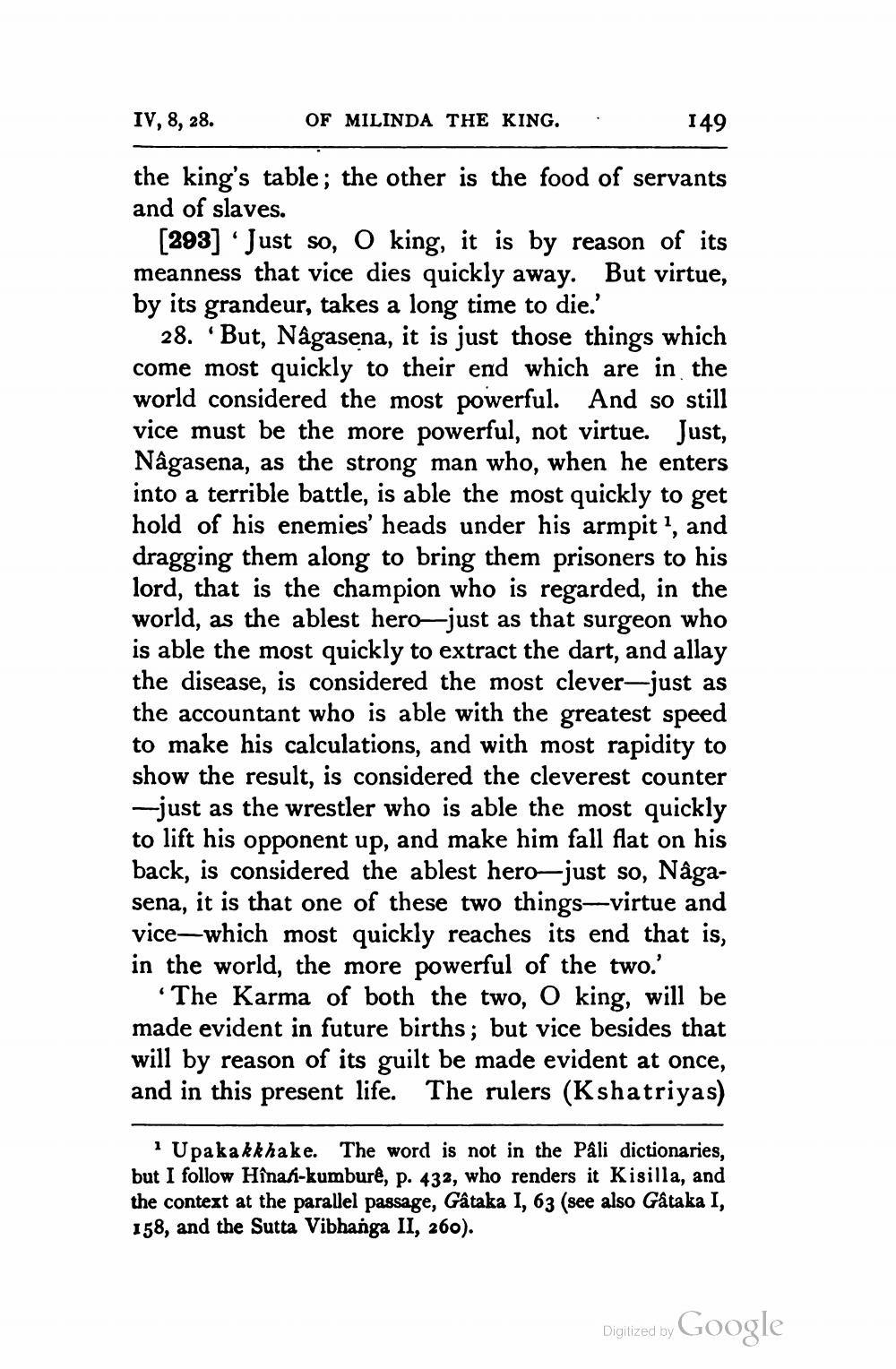________________
IV, 8, 28.
the king's table; the other is the food of servants and of slaves.
OF MILINDA THE KING.
1
(
[293] Just so, O king, it is by reason of its meanness that vice dies quickly away. But virtue, by its grandeur, takes a long time to die.'
28. 'But, Nâgasena, it is just those things which come most quickly to their end which are in the world considered the most powerful. And so still vice must be the more powerful, not virtue. Just, Nâgasena, as the strong man who, when he enters into a terrible battle, is able the most quickly to get hold of his enemies' heads under his armpit 1, and dragging them along to bring them prisoners to his lord, that is the champion who is regarded, in the world, as the ablest hero-just as that surgeon who is able the most quickly to extract the dart, and allay the disease, is considered the most clever-just as the accountant who is able with the greatest speed to make his calculations, and with most rapidity to show the result, is considered the cleverest counter -just as the wrestler who is able the most quickly to lift his opponent up, and make him fall flat on his back, is considered the ablest hero-just so, Nâgait is that one of these two things-virtue and vice-which most quickly reaches its end that is, in the world, the more powerful of the two.'
sena,
'The Karma of both the two, O king, will be made evident in future births; but vice besides that will by reason of its guilt be made evident at once, and in this present life. The rulers (Kshatriyas)
149
Upakakkhake. The word is not in the Pâli dictionaries, but I follow Hînani-kumburê, p. 432, who renders it Kisilla, and the context at the parallel passage, Gâtaka I, 63 (see also Gâtaka I, 158, and the Sutta Vibhanga II, 260).
Digitized by
Google




